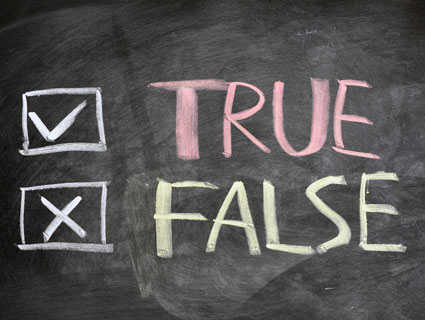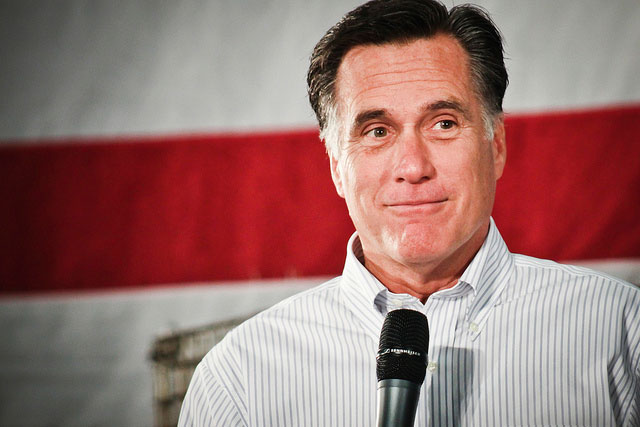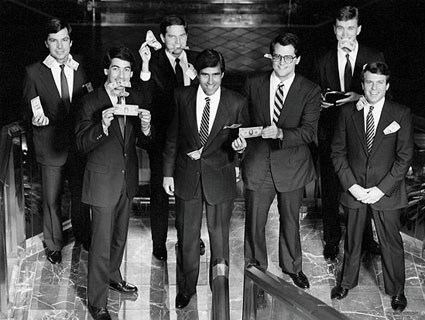
bbbar/<a href="http://www.shutterstock.com/cat.mhtml?lang=en&search_source=search_form&version=llv1&anyorall=all&safesearch=1&searchterm=fact+check&search_group=#id=91171784&src=525882f45af06430e97b4f341de94ca4-1-0">ShutterStock</a>
Media fact-checkers continue to take issue with the Obama campaign’s claims that Mitt Romney was responsible for Bain Capital’s outsourcing of American jobs, even though journalists (including Mother Jones‘ David Corn, Talking Points Memo‘s Josh Marshall, the Boston Globe, Huffington Post, and others) continue to uncover more information about Romney’s role at Bain between 1999 and 2002. Here are five questions for Annenberg’s FactCheck.org and the Washington Post‘s “Fact Checker” that may help sort things out:
- Is it possible that even without day-to-day managerial control, Mitt Romney may bear some moral or personal responsibility for the actions of Bain Capital post-1999, given that no one is disputing that he benefited financially from its actions and that his name was on the door? Is that question even fact-checkable?
- Much of the debate over when Romney left Bain has been driven by the Obama campaign’s claims that Bain invested in outsourcing US jobs while he was there. Fact-checkers have said it’s unfair to tie Romney to outsourcing during the 1999-2002 period. How should voters account for the fact that, as Corn reported, Bain invested in Global-Tech Appliances, a Chinese company that depended on outsourcing, prior to February 1999?
- Even if the Obama campaign made inflated claims about Romney’s post-1999 role at Bain, are Bain and Romney’s categorical denials that Romney was not “involved in the operations of any Bain Capital Entity in any way” and Romney “has had absolutely no involvement with the management or investment activities of the firm or with any of its portfolio companies since the day of his departure” justifiable? What is the definition of “operations” and “management activities”? Does it include signing documents? Are companies that Bain part-owned “Bain Capital Entities”? Are companies like LifeLike, whose board meetings Romney says he attended, Bain “portfolio companies”? If not, what is a “portfolio company”? Does serving as CEO/president/chairman of the Bain board count as a “management activity”? If not, why not?
- Does what we know about Romney’s situation during the 1999-2002 period—that Jane Swift’s Massachusetts governorship had not yet imploded, that Romney was also mulling a run for Utah governor, that contemporaneous accounts refer to him taking a “leave of absence,” and that on Sunday one of his advisers referred to Romney’s retirement as “retroactive”—indicate that Romney was maintaining some ties with Bain, if not active day-to-day management, in order to keep his options open if a political opportunity did not become available? Given those circumstances, would the company have made major decisions he strongly disagreed with?
- Most broadly: Given the available evidence, is it unfair to attribute any responsibility for Bain’s post-1999 actions to Mitt Romney? Are such attacks completely out of bounds? Would it be correct to say that Romney’s company—rather than Romney himself—outsourced jobs, given that he still owned it?
Correction: Due to a production error, a draft of this piece was published earlier. The text has been updated and corrected.











